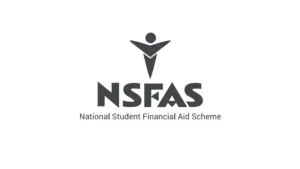The Unemployment Insurance Fund (UIF) is a vital financial safety net for South African workers. Managed by the Department of Employment and Labour, it provides temporary relief for workers who are unable to work due to unemployment, illness, maternity leave, adoption leave, or the death of a breadwinner. Both employers and employees are legally obligated to contribute to the UIF, with 1% of your salary deducted by your employer and matched by their own contribution.
Unfortunately, there are instances where employers fail to pay UIF contributions. If this happens to you, it can lead to difficulties in accessing your benefits when you need them most. In this guide, we’ll explore the steps to take if your employer has failed to meet their UIF obligations.
Understanding UIF Contributions
Before addressing employer non-compliance, it’s important to understand how UIF contributions work:
- Who Contributes to UIF?
Employers and employees each contribute 1% of the employee’s monthly salary to the UIF. These payments are submitted to the South African Revenue Service (SARS) or the Department of Employment and Labour. - Who Is Covered?
Most workers are covered, except for those working less than 24 hours a month for a single employer, learners under contract, or workers earning solely through commissions. - How Contributions Are Used:
UIF funds are used to provide benefits during periods of financial distress for workers.
Signs Your Employer Isn’t Paying UIF Contributions
There are several warning signs that your employer might not be paying UIF contributions:
- Your salary slip does not reflect UIF deductions.
- You cannot access UIF benefits when needed.
- You receive a notification from the Department of Employment and Labour about non-compliance.
Steps to Take If Your Employer Fails to Pay UIF Contributions
1. Check Your Employment Contract
Your employment contract should clearly outline whether UIF contributions are part of your benefits. Employers are legally required to register you with UIF, deduct your contributions, and pay these to the fund.
2. Request Proof of UIF Registration
If you suspect that your employer is not paying UIF contributions, request proof of your UIF registration. You can ask for your UIF reference number, which confirms your status in the system.
3. Speak to Your Employer
Before escalating the issue, raise your concerns directly with your employer. They may provide clarity or correct an administrative error. Ensure you document this interaction for future reference.
4. Contact the Department of Employment and Labour
If your employer fails to address your concerns, report the issue to the Department of Employment and Labour (DEL). Provide them with the following information:
- Your personal details.
- Your employer’s name and business details.
- Evidence of UIF deductions from your payslip, if available.
- A copy of your employment contract.
You can visit your nearest DEL office or email your complaint to uifcomplaints@labour.gov.za.
5. Verify Contributions With SARS
In some cases, the UIF contributions may have been made to SARS instead of directly to UIF. Contact SARS to verify whether payments were submitted.
6. File a Complaint With the CCMA
If your employer is non-compliant and you cannot resolve the issue through the DEL, you can escalate the matter to the Commission for Conciliation, Mediation, and Arbitration (CCMA). This independent body mediates disputes between employees and employers.
7. Seek Legal Assistance
If all else fails, consider legal action against your employer. You can consult an employment lawyer or seek assistance from organizations like Legal Aid South Africa, which offers free legal services to qualifying individuals.
Consequences for Non-Compliant Employers
Employers who fail to pay UIF contributions are breaking the law and may face serious consequences, including:
- Fines and Penalties: The DEL can impose fines or penalties on non-compliant employers.
- Prosecution: Persistent non-compliance can lead to criminal charges against the employer.
- Reimbursement: Employers may be required to repay contributions, including interest.
Protecting Yourself as an Employee
While the onus is on employers to ensure compliance, employees can take proactive steps to protect themselves:
1. Understand Your Rights
Familiarize yourself with the Basic Conditions of Employment Act and the Unemployment Insurance Act. These laws protect workers from exploitation and outline UIF obligations.
2. Monitor Your Payslips
Regularly review your payslips to confirm that UIF deductions are being made. If UIF contributions are not reflected, raise the issue immediately.
3. Keep Records
Maintain a personal record of all employment-related documents, including contracts, payslips, and communication with your employer.
4. Verify Your UIF Registration
Contact the UIF call centre at 0800 030 007 to confirm your registration status.
How to Claim UIF Benefits
Even if your employer has not paid your contributions, you may still be eligible for UIF benefits under certain circumstances. Here’s how to claim:
- Register on the UIF System: Use the uFiling website to register or update your details.
- Submit Required Documents: These may include your ID, proof of unemployment, and bank statements.
- Follow Up Regularly: Track your application and provide any additional information requested by the UIF.
Key Takeaways
- Employers in South Africa are legally obligated to pay UIF contributions on behalf of their employees.
- If your employer fails to comply, report the issue to the Department of Employment and Labour, and escalate as needed.
- Understand your rights, monitor your payslips, and keep detailed records to protect yourself.
- Seek legal assistance or file a formal complaint if your employer remains non-compliant.
Related: Retrenchment and UIF: What You Need to Know In 2025
Failing to pay UIF contributions not only jeopardizes an employee’s access to benefits but also undermines the social safety net for workers in South Africa. If you find yourself in this situation, take immediate action by engaging with your employer and reporting the matter to the relevant authorities. By understanding your rights and the steps to resolve non-compliance, you can protect your financial security and hold employers accountable.










